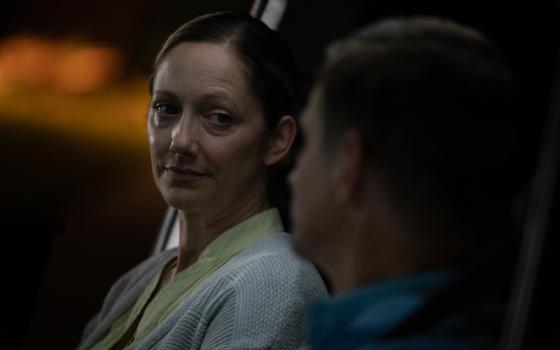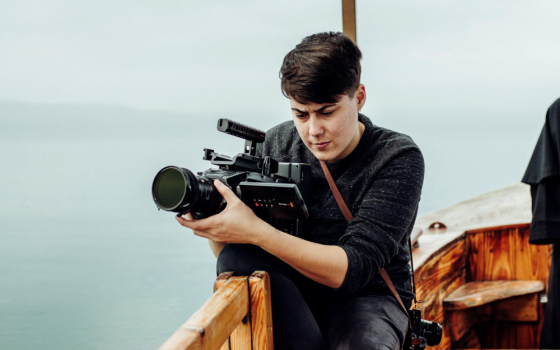NAIROBI, KENYA -- "War does not bring peace" is a refrain sometimes heard among those in Kenya's religious communities.
Yet while there are some private misgivings about Kenya's recent incursion into Somali border areas, public support for the action -- often called Kenya's "first war" -- remains strong. (Although in recent weeks, Kenyan human rights activists have said Kenyans are not getting adequate media coverage needed to properly judge the war.)
As one Roman Catholic cleric put it: "If you have lions among your people, you need to cage the lions. The government had no other option."
The alarm is due in part to insecurity -- following bombings and grenade attacks throughout 2011, Kenyans feel under siege by the Somalia Islamic militant group Al-Shabab. The group controls large parts of Somalia and has restricted humanitarian access by outside organizations, arguing the groups have harmful agendas. The lack of access has been roundly condemned internationally as worsening Somalia's current crisis, resulting in more famine-caused deaths in Somalia.
In predominately Christian Kenya, tensions and concern about Somalia, which is overwhelmingly Muslim, are colored by fears that Somali criminal elements with deep pockets are disrupting Kenyan society and politics.
But some worry about the effect of anti-Somali sentiment on the nearly 1 million Somalis who now reside in Kenya. One such group is the advocacy group Save Somali Women and Children. Formed by Somali women and based in Nairobi, the group is led by Asha Hagi Elmi.
Here are some excerpts from a recent email interview with Elmi:t
NCR: There seems to be an enormous amount of distrust of Somalia and of Somalis in Kenya. Is that an accurate reading, and how is your organization battling those feelings of distrust?
Elmi: Fighting against Al-Shabab does not amount fighting Somalia and Somalis. It's unfortunate for some people to mix the two. To victimize the Somalis because Al-Shabab is from Somalia clearly shows that some people are lacking the deep understanding of the dynamics and the nature of Al- Shabab.
Al-Shabab is not based on identity but on ideology, and its members are from all over the world, but not from a specific community. Even some Kenyan nationals are part of Al-Shabab -- for example, the two bombings that occurred a few weeks ago in Kenya (late in 2011) were conducted by Al-Shabab members who were Kenyans but not Somalis.
As an organization, we took the moral responsibility of having talks with civil society groups, peace groups and prominent Kenyan personality. Security is not meant for an individual but for all of us. Therefore, it calls for a collective responsibility. This idea compelled us to discuss with them the importance of not losing sight of the broader issue and encouraged them to use the media in distinguishing Al-Shabab and Somalis.
We advised them to enlighten Kenyan citizens and advised them not to give distrust a chance because distrust will instead give a chance to the enemy of peace.
How do you place the Somalia experience in the current overall humanitarian crisis in the Horn of Africa? What are the particular challenges facing the country and Somalis right now?
The drought that caused this humanitarian catastrophe in the horn of Africa was the worst in 60 years. Somalia was the hardest hit because the drought was coupled with other factors like a security crisis, political crisis, lack of political leadership and corruption. These factors pushed the Somali people in unprecedented situation and made this humanitarian catastrophe one of the worst in recent times. It claimed thousands of lives in Somalia, including a large percentage of malnourished children who died in their mothers' laps.
The main challenge facing Somalia and its people is the lack of an effective central government that is accountable to its people and able to provide security to its citizens. Somali people are yearning for an effective Somali government that can provide services to its citizens. The vast majority of Somalis are longing for security: human and public security. The other challenge is poverty, unemployment and anarchy, which have led to a fertile ground for Al-Shabab recruitment.
NCR: How fairly or unfairly has Somalia been portrayed in the current crisis?
The culture of international media has been to feature negative stories about Somalia and its people. There are other positive stories that deserve to be revealed to the international media. For example, the resilience and coping mechanisms of Somali people despite the elongated 20 years of war, yet people are creative and good entrepreneurs.
Somali organizations have been trying to fill the gaps created by the war. Somali women, to be precise, have been playing major roles in creating political awareness. For Somali women to participate in politics should be a success story. The high level of education in Somalia considering the country's political history is a success story; many Somali youths are enrolling each year in different universities to increase their knowledge and education.
Stories in this series
|


